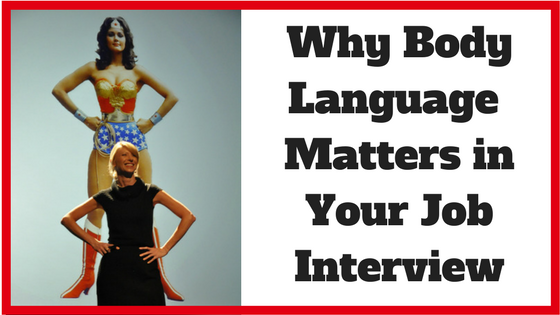Why Body Language Matters in Your Job Interview
Have you ever been to a job interview and felt like you didn’t quite present the best version of yourself or got into a discussion where you felt increasingly defensive? Your body language will likely indicate exactly how your feel.
While there are some forms of body language that can help you feel more confident (power poses), other can display unfavourable characteristics and should be avoided.
Amy Cuddy, a social psychologist who studies the influence of nonverbal expression, explains that these non-verbal communications centre around expressions of power and dominance. Nonverbal expression is essentially our body language. Body language is universal, extending across the whole animal kingdom. When we spread out our bodies, open our arms and take up space we are asserting our power to those around us.
In contrast, closing up your body, crossing your arms and legs or facing your head downwards creates a defensive expression which defers to those around you. Such defensive positions are more likely to confer power onto those around you, especially if they are assuming more dominant positions.
Fake it till you make it
In her TED Talk, Amy Cuddy explains that this body language is an indicator of how we feel and can also have a surprisingly powerful impact on our thought processes. Cuddy advocates the idea that you can ‘fake it till you make it’; that is, fake body confidence until you’re genuinely feeling more confident.
Even if you don’t feel particularly confident going into your job interview, using poses and body language associated with confidence and power can actually make you feel more powerful. In fact, moulding our bodies into specific shapes can have a profound effect on our minds.
The two hormones at play here are testosterone, which is linked to dominance, and cortisol, the stress hormone. Studies have not only found an increased level of testosterone in powerful, successful people, but also a reduced level of cortisol — demonstrating that power directly relates to how we react to stress.
Use power poses before and during a job interview
Just two minutes of power poses can lead to changes in the balance of these hormones, demonstrating that we can induce and alter whether we feel relaxed, powerful or stressed through the simple use of our body language.
Here are some of the best ways to utilize your body language in order to boost your self-confidence before, during and at the end of the interview:
- Take up the space that you feel you deserve – don’t feel the need to cross your arms or constrict yourself.
- Make eye contact and don’t feel like you have to look down or look away when someone more superior is speaking to you.
- Use gestures to illustrate your expressions and take command of the room.
- Practice ‘power poses’ before your interview; this will increase your confidence and decrease your level of stress.
Thinking of hiring a career coach to help you gain confidence in your job search? Browse our directory of career coaches and get a FREE consultation or request a personalized coach recommendation!
About the Author Alexandra Jane
Alexandra Jane writes graduate careers advice for Inspiring Interns, who specialize in matching candidates to their dream internship. Check out their graduate jobs listings for roles.

